I remember the very time I shot a 1911 pistol. My excitement was intense because I had finally acquired, according to what other shooters had told me, the best-shooting type of handgun. Based on what I’ve learned, I hope to share some tips on how to shoot a 1911 pistol.
Since I was so new to it, I’ll admit that my trigger discipline was not as good as it is now. I took it to the range, aligned the sights and squeezed the trigger, and bam — dead nuts on target. Clearly, the 1911 is a gun that can shoot well.
I will admit, I wasn’t totally ready for how light the trigger was. It was easy to shoot well, but I was more accustomed to heavier triggers. I put the pistol down, took a few breaths, and then took it back up to try some more shooting.
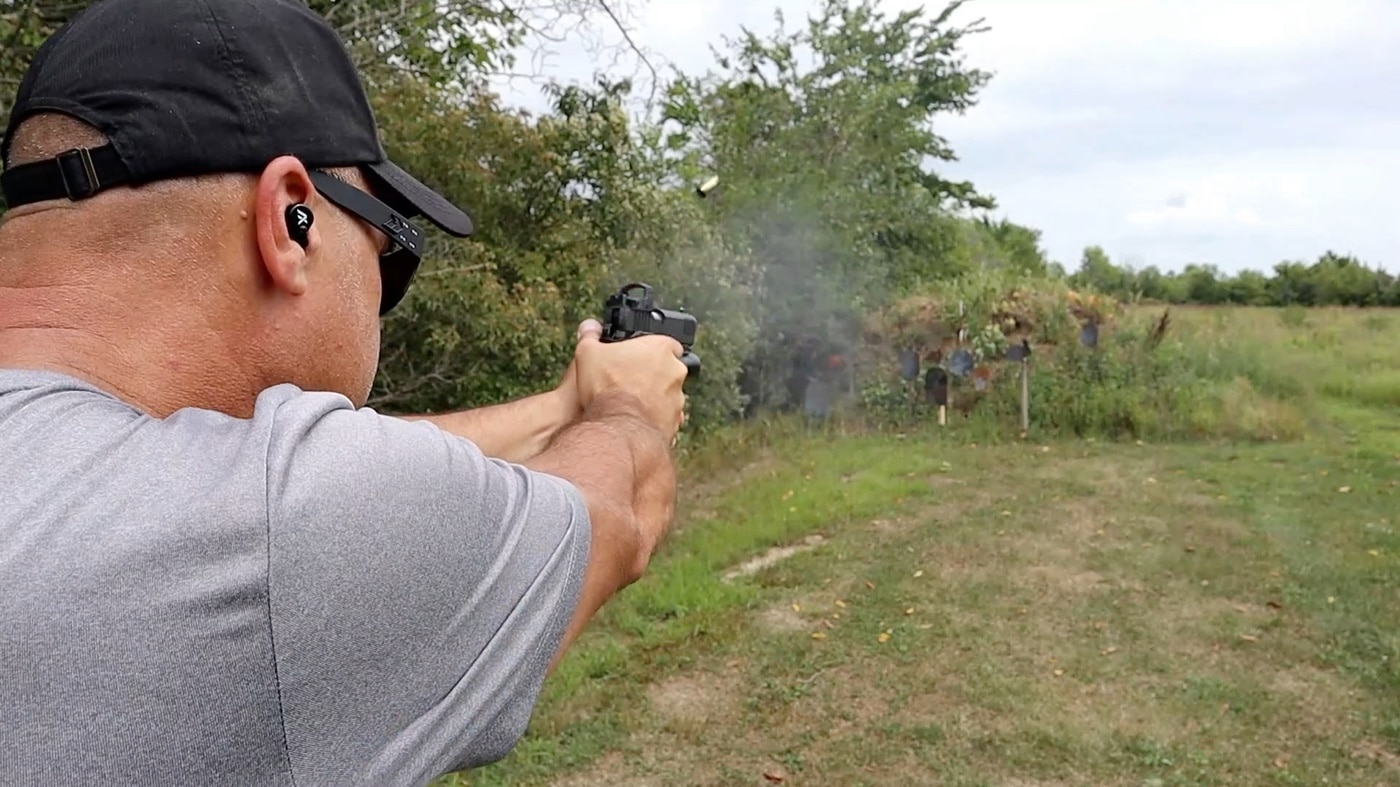
I missed a swinging 10” round steel target on a shepherd’s hook 10 yards every other shot. What was going on here? I realized I was thinking too much about the “light” trigger and losing the “magic” that had happened on my first shot.
Well, that was a long time ago, and any of you who have seen my videos or read my articles know that I am an avid 1911 fan. So, how did I come around to understanding the benefits of the 1911? I decided to create this review so that new and future 1911 shooters do not have that first range experience that I had.
Trigger: Pivot vs. Sliding
The Springfield Echelon has the best trigger I have ever experienced with a polymer frame, striker-fired handgun. It’s smooth, has short travel and breaks at the perfect time. This system features a pivoting trigger. With a pivoting trigger, the perceived weight of the trigger can be affected where the trigger finger is positioned (although the Echelon’s flat face trigger helps alleviate this a great deal).
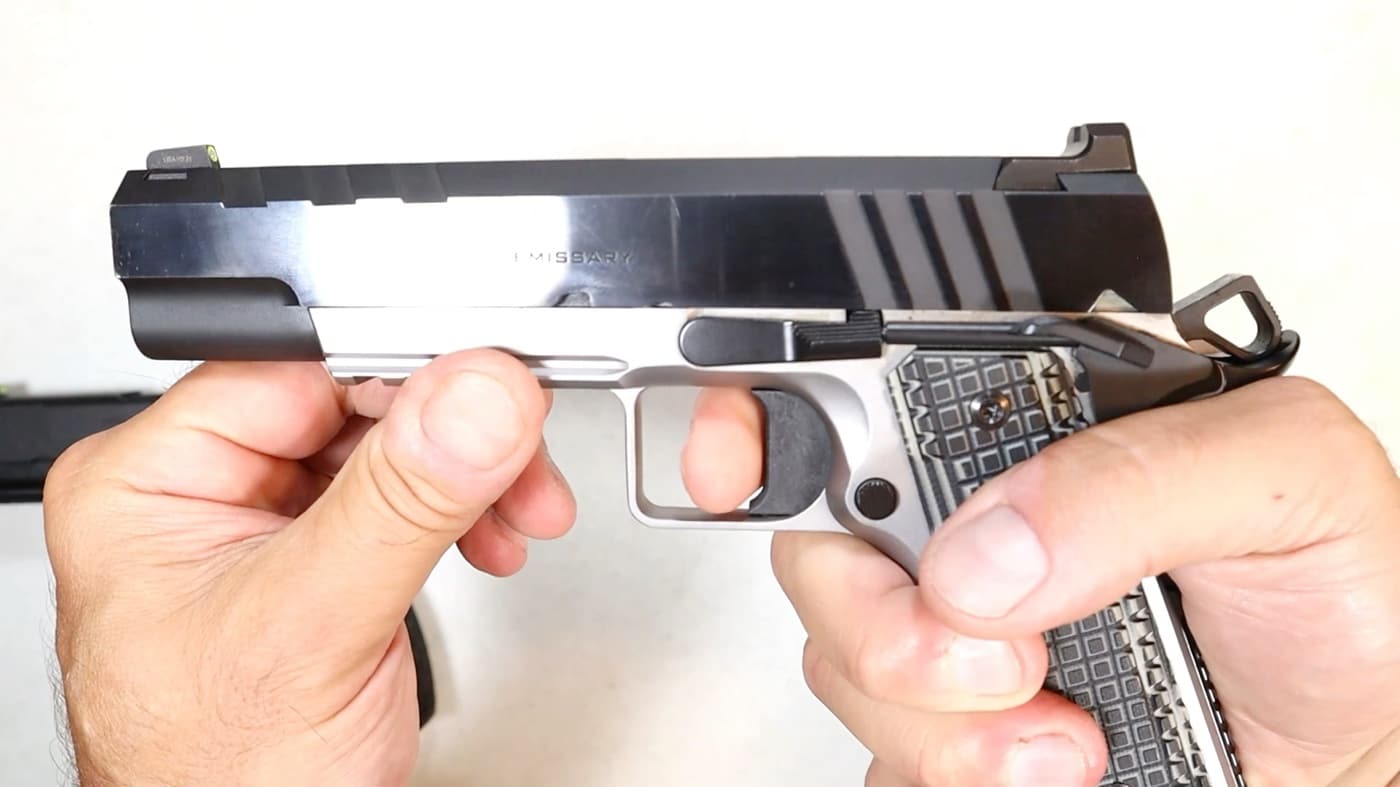
A 1911 trigger is, in my opinion, the greatest single-action trigger ever invented. The trigger travel is short, the weight is light, and the smoothness is unmatched. A 1911 trigger slides back and forth. As a result, the trigger travel and trigger reset is much shorter than a pivoting trigger. The trigger weight is also typically much lighter than a pivoting trigger. Why does this matter?
The shooter needs to understand that with a shorter and lighter trigger pull like this, you get excellent trigger pulls and downrange accuracy. But, you also need to be aware of your trigger discipline — frankly, as you should with any other firearm.
Once the 1911 sliding trigger is mastered, the shooter will experience the finest handgun trigger action known to man.
Thumb Safety: Use it or Lose it
Since the 1911 pistol uses a single-action trigger that is short and light, shooters must engage the thumb safety everytime the hammer is cocked back and when the gun is not pointed down range or is not ready to be fired. Also, the thumb safety should be engaged when the pistol is loaded and holstered.
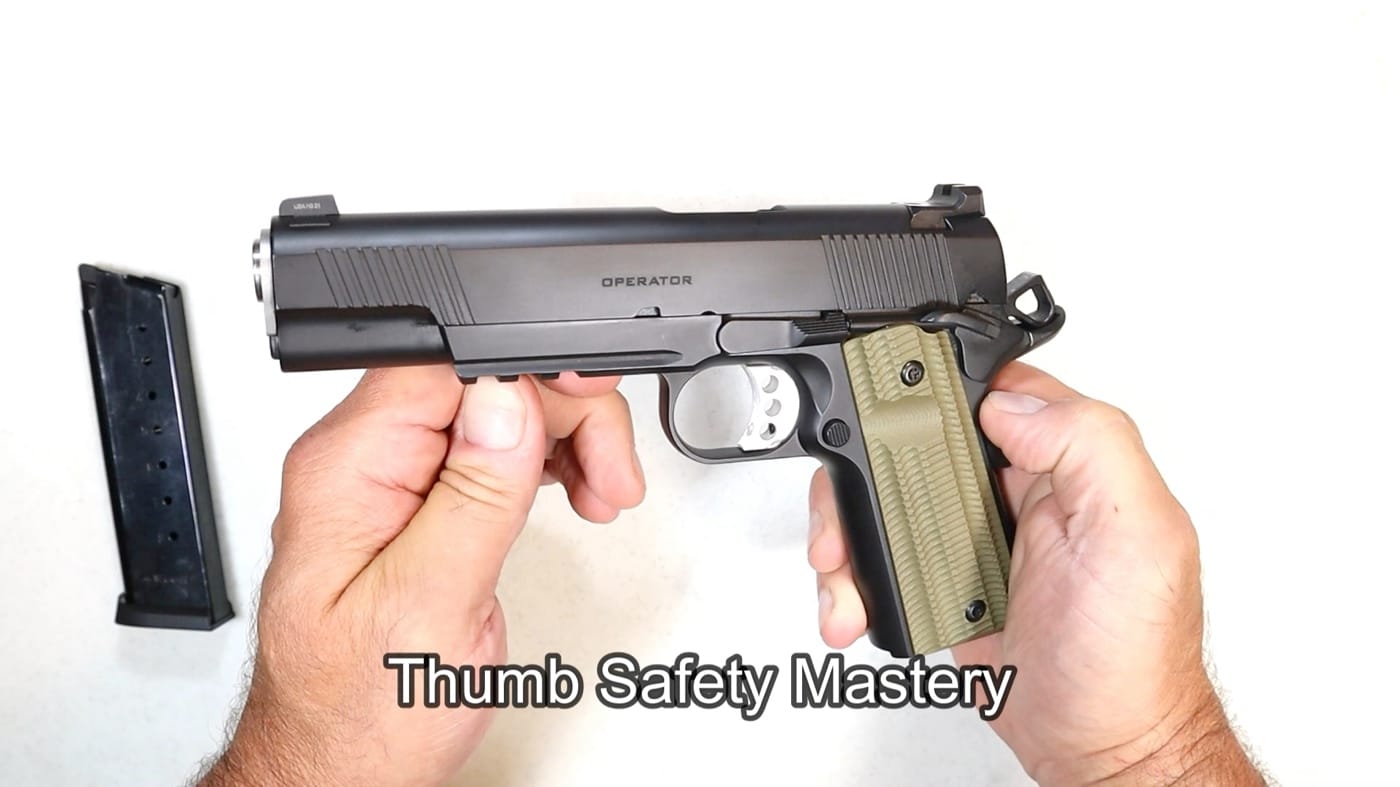
As with most things involving carrying a pistol, muscle memory is extremely important. Those who carry 1911 pistols should practice the act of drawing the pistol — with an empty gun in a safe location — from the holster and sweeping down the thumb safety as the pistol is pointed toward the target. Keeping the thumb safety engaged every time there is a cocked hammer and the pistol is not being fired is a basic but essential rule for 1911 shooters.
When firing a 1911, I find it best for shooters to keep their dominant thumb atop the safety. Not only does this present a rest pad for the thumb, but it prevents unintentionally engaging the safety when firing.
Why is this? If the shooting hand thumb is placed under the thumb safety, the gun’s upward recoil may cause the shooter’s thumb to engage the safety. I have had this happen several times. I had to learn to place my thumb over the safety to prevent an unintentional thumb safety engagement.
Don’t Drop It
It has been customary for shooters to drop a locked-back slide on an empty chamber by using the slide stop on most semi-autos. It’s not a big deal. Taking a polymer frame pistol and dropping the slide with an unloaded magazine will likely cause no issues with the pistol.
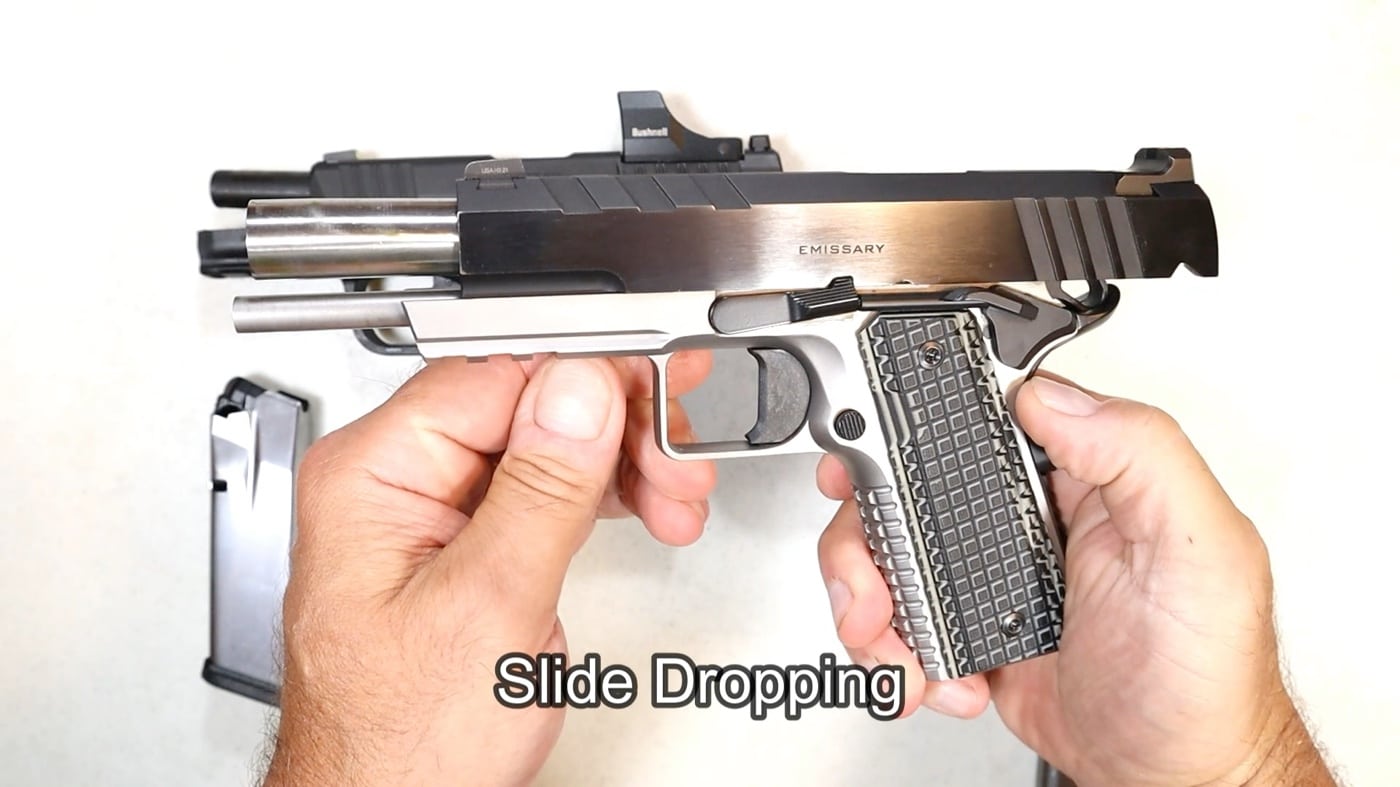
With the 1911, the etiquette is to not do this. Dropping a locked slide, using the slide stop, on an empty chamber goes against 1911 etiquette. Will it damage the pistol? Probably not, but it is viewed as a rookie move.
More importantly, it may create additional stress on the engagement of the sear. It is best to use the opposite hand to ease the slide closed on an empty chamber to prevent slamming the slide.
Disassembly
Disassembling a 1911 is not a hard process, but it requires some practice and experience. The disassembly or reassembly of a 1911 should never be rushed. Shooters should make sure they have the time needed to properly go through the steps in a systematic and safe order to assure the process is correct. This all goes back to love, care and respect for the 1911’s.
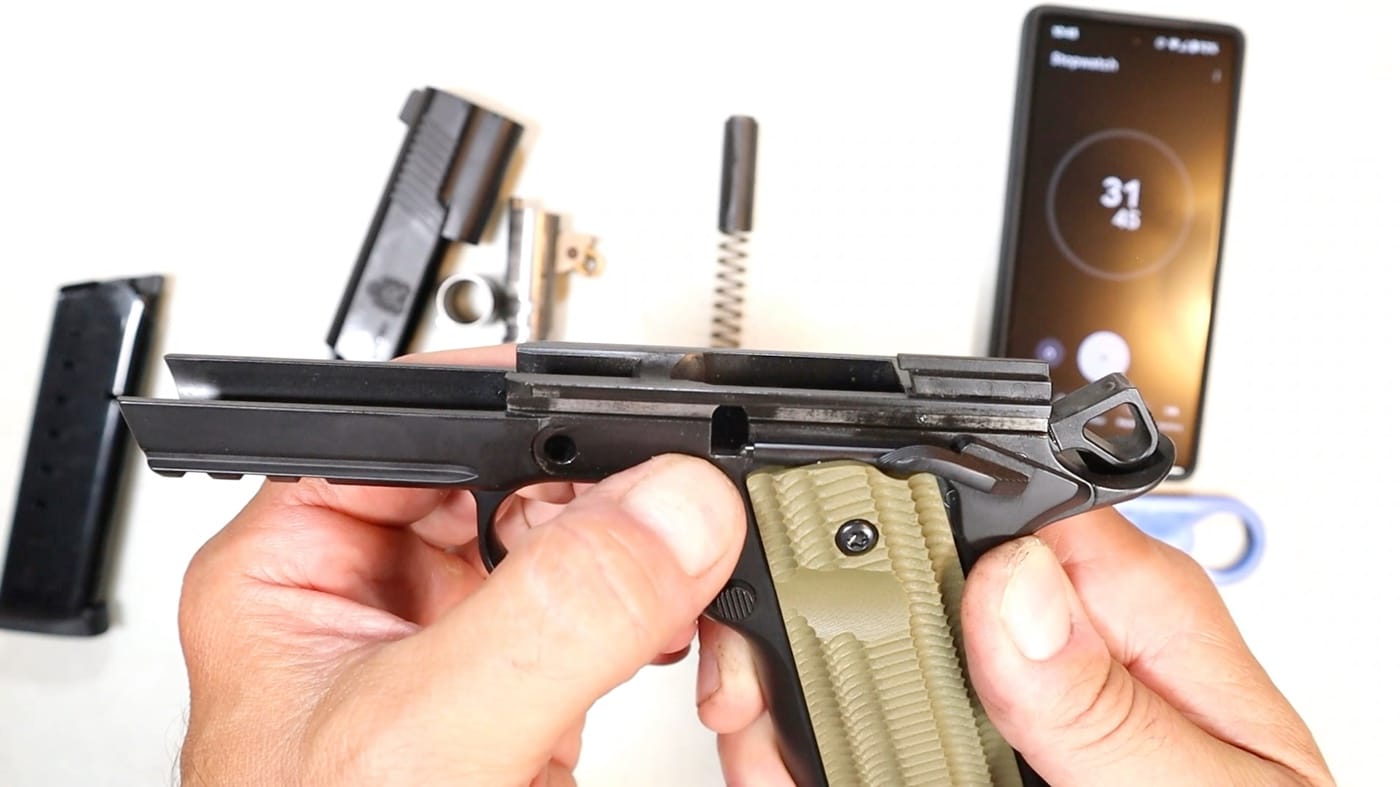
In the attached video, I demonstrated the difference between dissembling an unloaded Springfield Armory Hellcat Pro and an unloaded Springfield Armory 1911 Operator. I timed the disassembly of both unloaded pistols to demonstrate the differences. The Hellcat Pro took me 11 seconds to fieldstrip the pistol. The 1911 Operator took approximately 31.5 seconds to disassemble. Why did I do this?
[Be sure to read our in depth guide on How to Disassemble a 1911.]
I needed to show the differences of the more simple Hellcat disassembly process versus the more detailed disassembly that is required for a 1911. Obviously, there are more steps needed to disassemble a 1911. However, once the process has been performed a few times, the 1911 owner may feel more comfortable moving at a faster speed.
Conclusion
It’s my opinion that 1911 pistols are the greatest pistols ever created. Springfield Armory 1911’s are built with incredible craftsmanship using the finest materials. Whether your choice is 9mm, .45 ACP or 10mm, Springfield has you covered with their wide range of 1911 pistols offered.
If you’ve been looking at getting into the 1911 game, be sure to check out one of their pistols. You won’t be disappointed.
Editor’s Note: Please be sure to check out The Armory Life Forum, where you can comment about our daily articles, as well as just talk guns and gear. Click the “Go To Forum Thread” link below to jump in and discuss this article and much more!
Join the Discussion
Featured in this video
Read the full article here

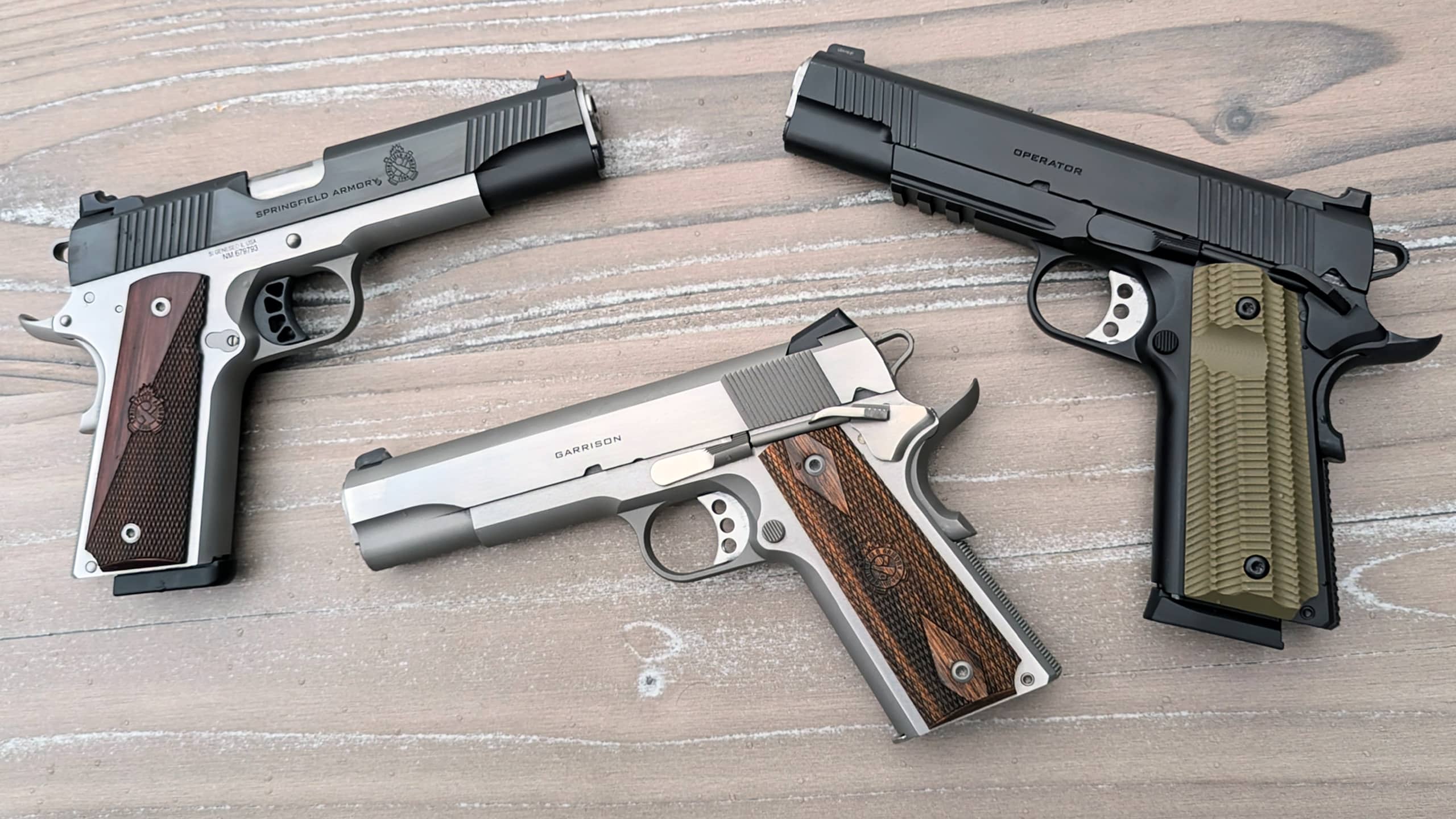
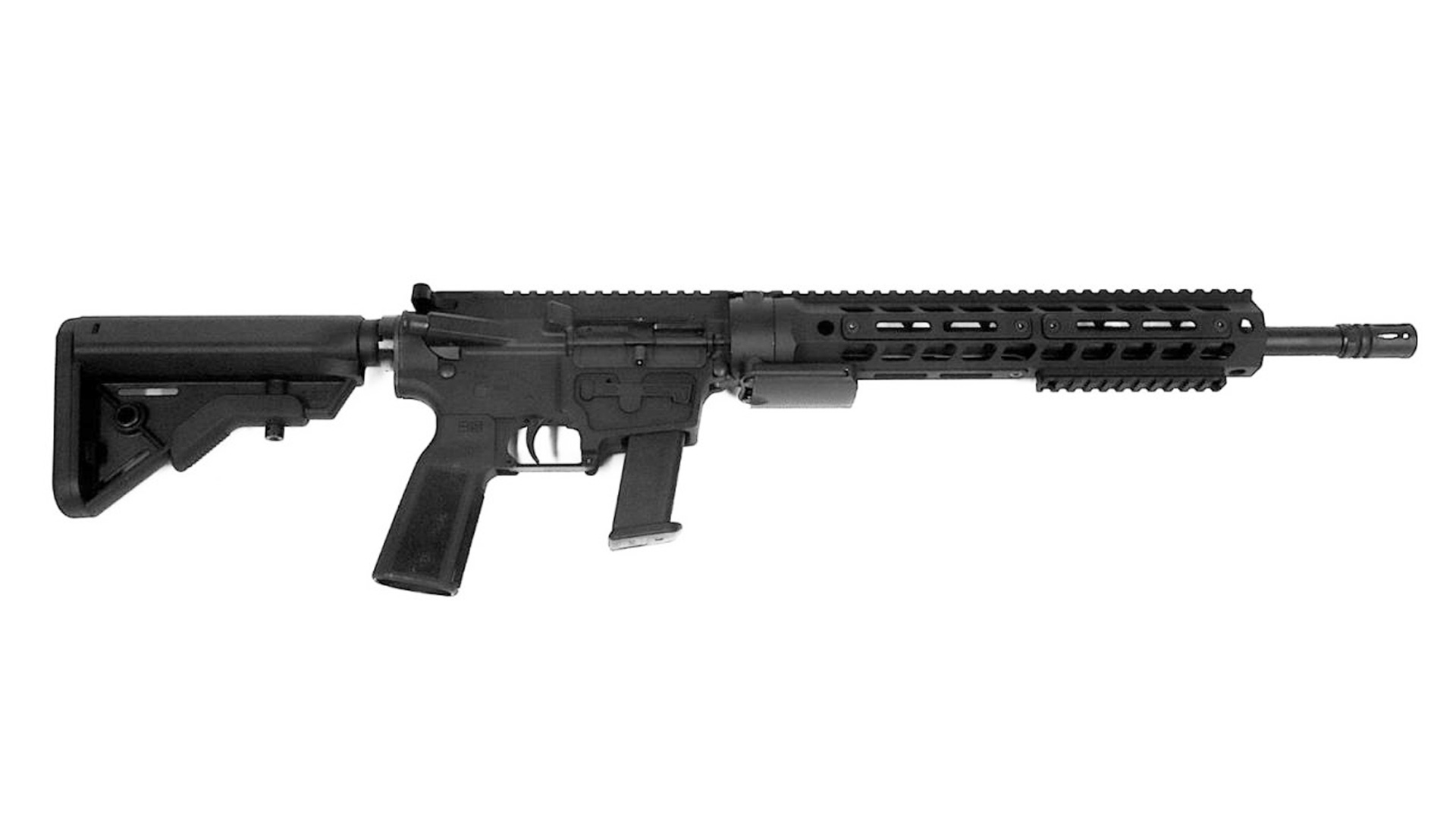
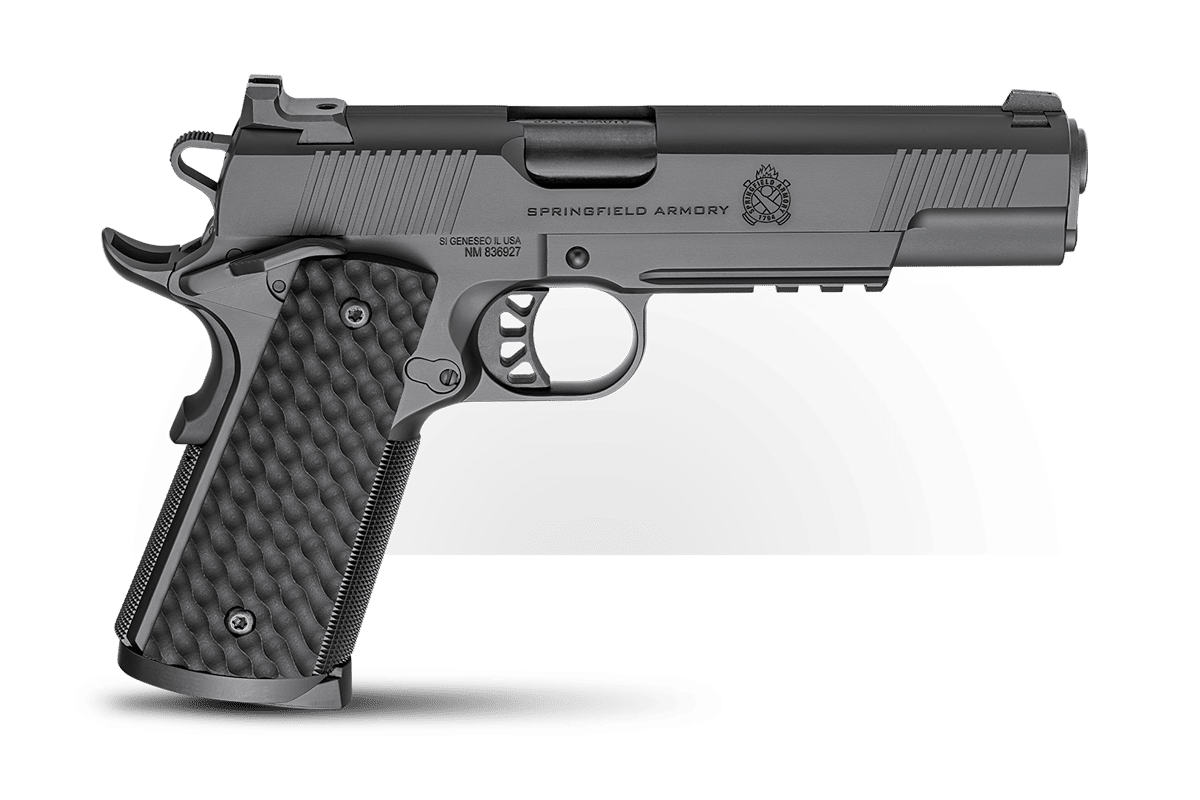




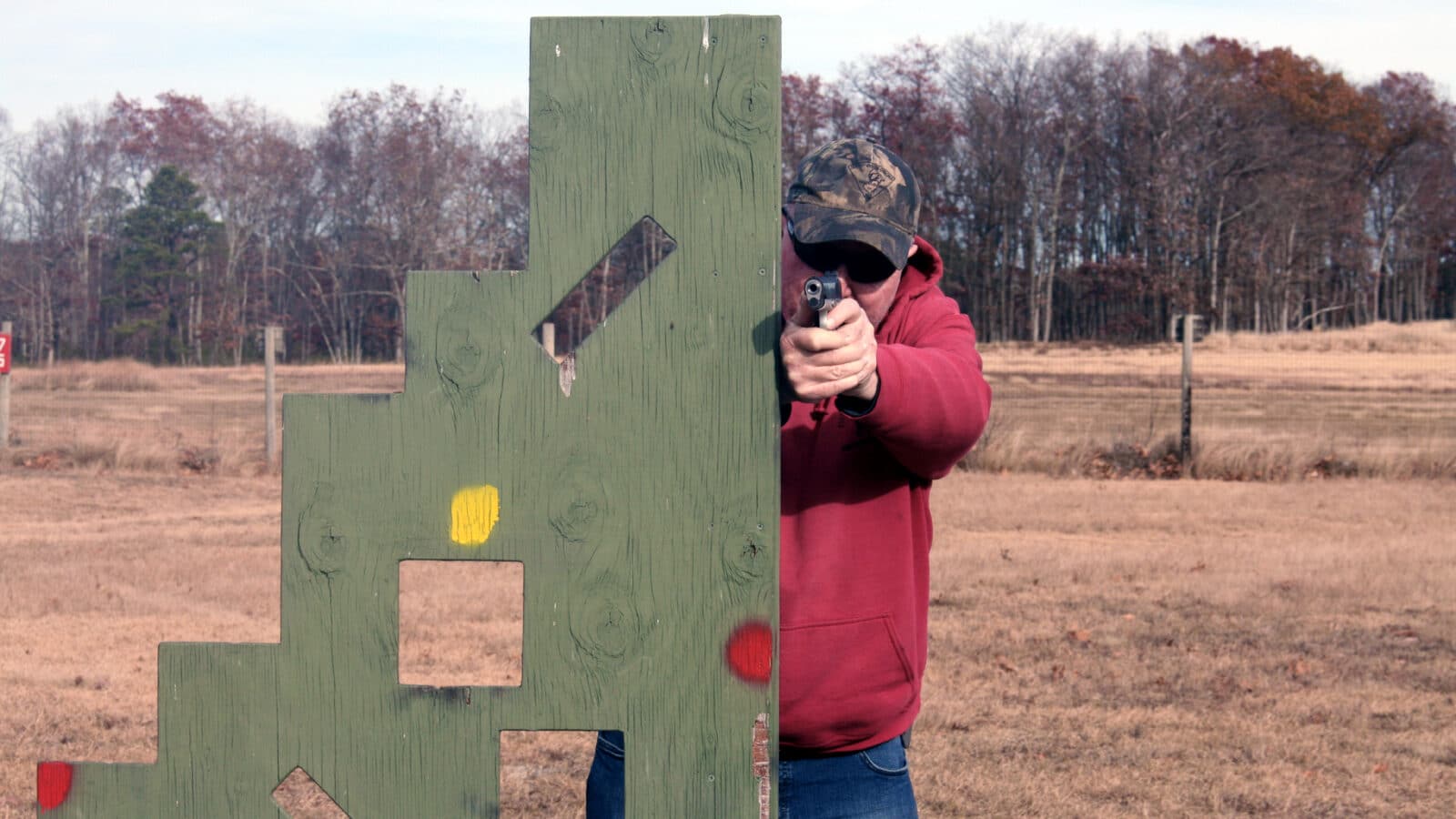


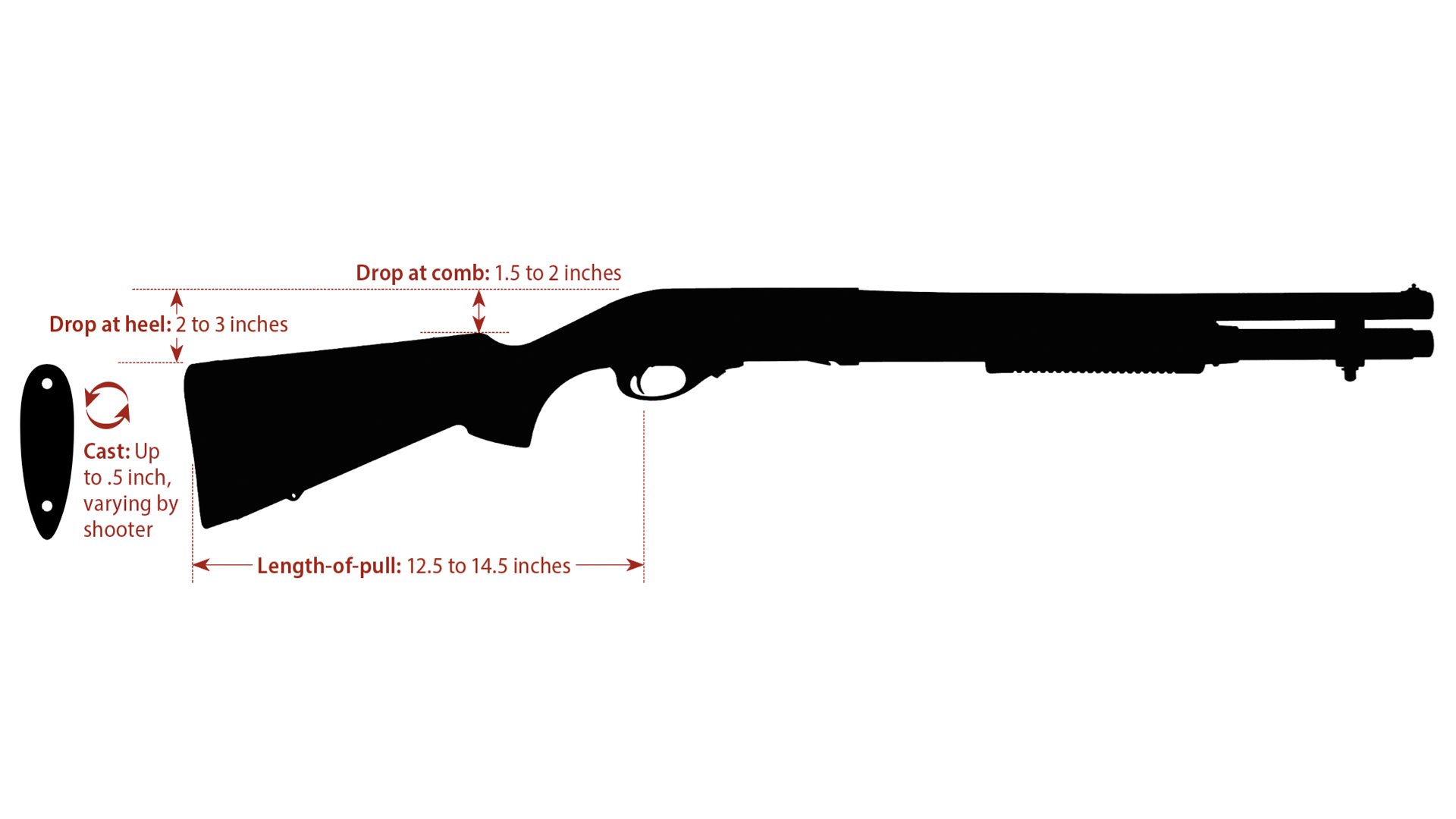

Leave a Reply